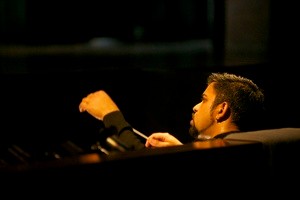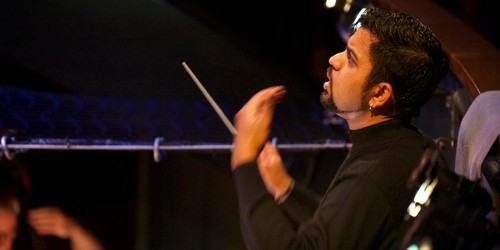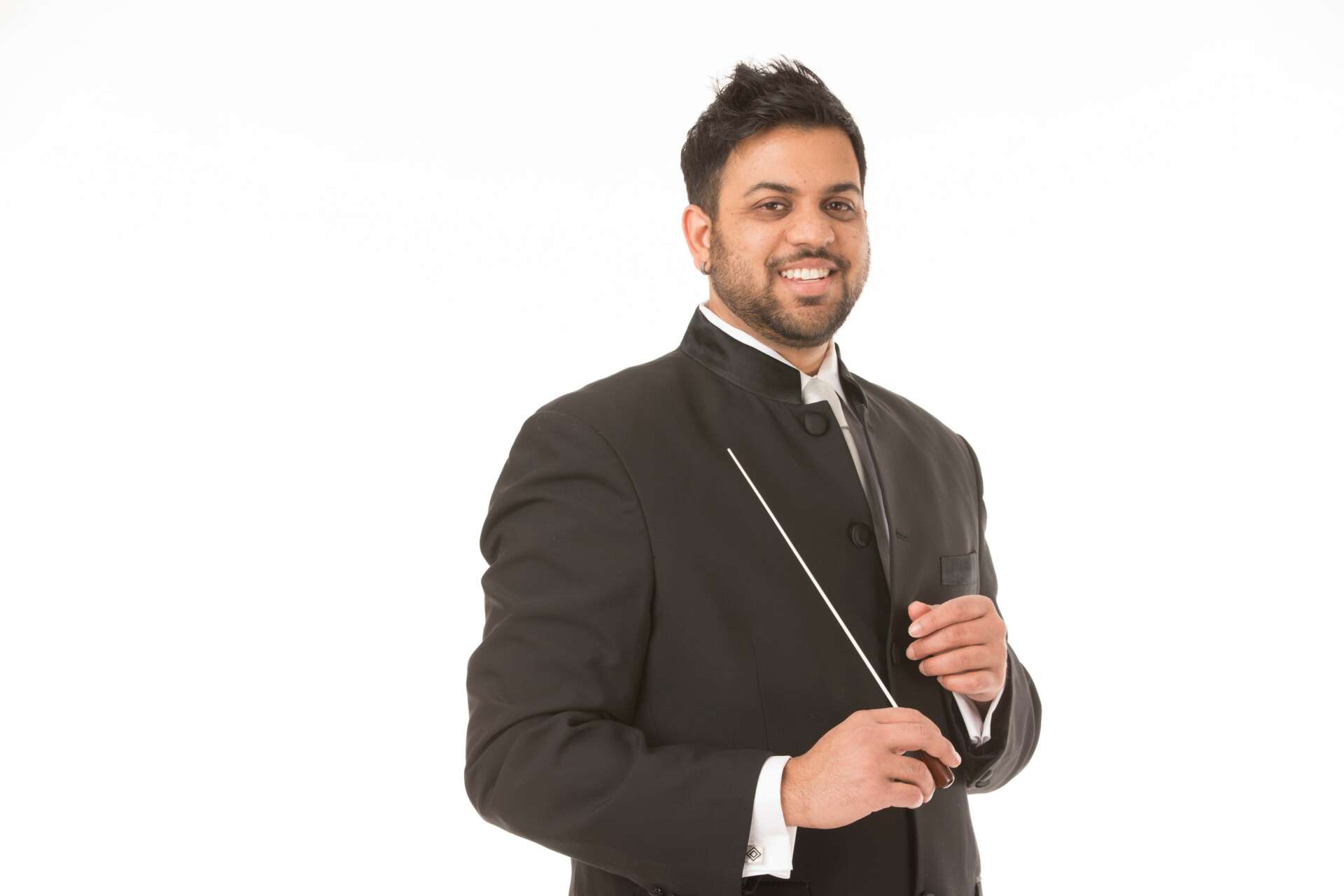We caught up with the brilliant and insightful Viswa Subbaraman a few weeks ago and have shared our conversation below.
Viswa, appreciate you joining us today. Learning the craft is often a unique journey from every creative – we’d love to hear about your journey and if knowing what you know now, you would have done anything differently to speed up the learning process.
I think learning the craft of conducting is a truly bizarre journey. You study music in school, and you learn to play an instrument or sing, but conducting is a musical career in which you make no sound. I did all the usual things like pursuing my undergrad degree and a masters in conducting, but fundamentally, conducting has to be learned in front of people. You learn to conduct, by conducting other people. The job is a blend of music, performance, psychology, leadership, and dance. Your gestures (should) influence the sound of the orchestra and singers while putting them in the best position to create a great performance. So much of the early part of learning one’s craft is simply getting to the point of understanding how your technique influences sound. I think by the time I finished my Masters, I actually had sufficient technique to start being able to hear an orchestra. We jokingly call those first years of try9ing to wave your hands with competency “overcoming podium deafness”. I was lucky to win a Fulbright to Paris where I basically apprenticed with John Nelson and Kurt Masur. It was really then that I feel like I began to understand the true craft of conducting. Conducting is more than hand and arm technique. It’s understanding how to rehearse and motivate an orchestra to play amazingly fiery performances. It was those apprenticeships that were truly invaluable. I think the greatest obstacle I faced early on was that I came out of a university not known for it’s music performance. It was hard to get those doors open, but once I hit that first audition in Paris, it all seemed to take off.

Awesome – so before we get into the rest of our questions, can you briefly introduce yourself to our readers.
I have a very atypical journey into music. I played trombone in marching band in west Texas.. (I had started on violin in 4th grade, but my teacher moved, and there wasn’t an orchestra program in school). I went to Duke firmly committed to being pre-med. I decided to double major in Biology and Music. I figured music could always be a fun hobby for the future. I ended up spending my second semester sophomore year in Vienna with the Duke Wind Symphony. It was the first time in my life I had seen a professional orchestra or an opera live. I was hooked. To be honest, I never even thought of music as a possible career. I decided to give conducting a try. In the end, I was lucky it worked. The industry provides a lot of challenges. It’s incredibly difficult to break into – especially for minorities. It’s also a difficult career to survive early on. Most of the American conductors I know worked part time jobs while chasing after their conducting habit at the beginnings of their careers. It isn’t for the faint of heart.
I think I’m the most proud of the sheer amount of new music I have helped bring into the world. I have conducted a number of orchestral and opera premieres, and the opportunity to work with living composers and tell the stories of our time has been truly amazing.

Is there something you think non-creatives will struggle to understand about your journey as a creative? Maybe you can provide some insight – you never know who might benefit from the enlightenment.
I have to admit, I always wished Muggles (non-creatives) would understand that we do actually work. I may be between gigs, but I’m constantly studying and learning the music for the next gig or having to put together projects to pitch to companies. Plus, even though I love my career and find it fun and fulfilling, it is still work. When you conduct a multi-million dollar production, there is a lot of pressure on your shoulders to get it right. It isn’t easy – even if I love it.

What can society do to ensure an environment that’s helpful to artists and creatives?
I think one of the biggest challenges in the modern era is that so much art and entertainment is available at the drop of a hat. You can find something to amuse you by flipping through your phone. What has become tough – especially for large arts organizations such as orchestras or operas – is that audiences are not always as willing to stick with a company through an entire season if they don’t know what the show is about. In order to keep an art form “living”, artists need to experiment and create new works. There will be times that it doesn’t always please everyone in the audience. That’s ok. Everyone doesn’t need to love every show or new work, but it is important that a community supports the organization through those experiments. These organizations provide so much to the community that isn’t always seen directly. For example, many of those musicians in your orchestras are also the private lesson teachers in schools. Those opera companies also do educational outreach into the community. The ecosystem of having these arts organizations reaches far and wide in a community. It’s important to support and push them to create great works. We’d be excited to see that support.

Contact Info:
- Website: www.viswasubbaraman.com
- Instagram: @MaestroViswa
- Facebook: @MaestroViswa
- Youtube: @CameronCrazie1998
Image Credits
Scott Paulus and Mark Frohna


